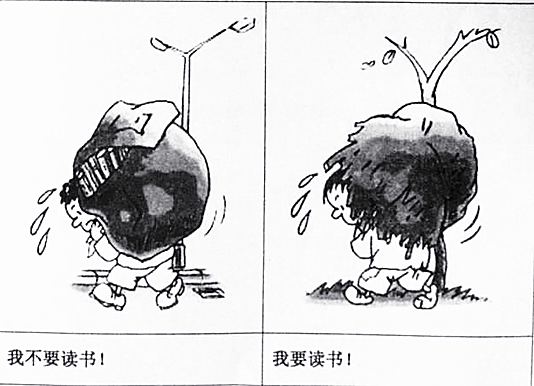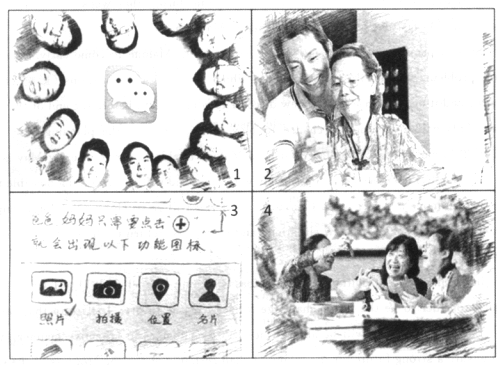题目内容
17.Asia has long tradition of tea-drinking.And China is no exception.However,lately more and more Chinese people are turning to a different (1)B.Coffee has become a/an (2)D popular choice of Chinese people living abroad and in the country's (3)A cities.In big cities such as Beijing,coffee shops seem to be on nearly every major street corner.These (4)C are not just selling drinks from Starbucks,the world-famous coffee company.Coffee businesses from South Korea and Britain are also (5)C in China.
Many young Chinese people drink coffee (6)D--when meeting with friends.Yang Lin lives in the U.S.but comes from an area in China (7)A for growing tea.She used to (8)B drink tea while in China.But now,she says,she drinks both and for different reasons.
Yang Lin says she was a tea drinker when she was back in China.But she likes coffee and tea (9)Cnow.Drinking coffee for her is a social event.She and her co-workers like to sit in a café and talk over a cup of coffee.Tea,she says,is more about family (10)A.She grew up in Fujian province--an area known for its tea.Ms.Yang says that as a child,her family would (11)B together in the evening and talk about the day's events over a steaming pot of tea.So now,(12)A the smell of Fujian tea brings back these (13)D family memories.
On average a person in China drinks about five cups of coffee a year.This information comes from the China Coffee Association Beijing.That (14)C is far below the world average of 240cups a year.But the association says the amount of coffee that Chinese drink is (15)B by about 15percent every year.
| 1.A.business | B.drink | C.attitude | D.custom |
| 2.A.abnormally | B.necessarily | C.thoroughly | D.increasingly |
| 3.A.huge | B.ancient | C.remote | D.conservative |
| 4.A.cities | B.companies | C.shops | D.foreigners |
| 5.A.producing | B.earning | C.operating | D.struggling |
| 6.A.passively | B.deliberately | C.elegantly | D.socially |
| 7.A.famous | B.appropriate | C.anxious | D.beneficial |
| 8.A.seldom | B.only | C.unwillingly | D.never |
| 9.A.completely | B.gradually | C.equally | D.eventually |
| 10.A.memories | B.values | C.possessions | D.traditions |
| 11.A.work | B.gather | C.cook | D.pull |
| 12.A.even | B.still | C.somehow | D.hardly |
| 13.A.rare | B.tough | C.lonely | D.warm |
| 14.A.information | B.cost | C.amount | D.production |
| 15.A.decreasing | B.growing | C.dividing | D.profiting |
分析 该文章主要介绍咖啡在中国越来越受欢迎的趋势.
解答 1.B.考查上下文理解,business生意;drink饮品;attitude态度;custom风俗.根据Coffee has become a/an increasingly popular choice of Chinese people living abroad可知是饮品,根据句意:然而最后越来越多的中国人转向一种不同的饮料,故选B项.
2.D.考查副词辨析abnormally 不正常地;necessarily必要地;thoroughly彻底地;increasingly渐增地;根据句意:咖啡已经成为住在海外的和大城市的中国人的一种渐增地流行的选择.可知选D项.
3.A.考查上下文理解,根据下文In big cities such as Beijing,可见前文指的是中国的大城市,huge巨大的;ancient古代的;remote遥远的;conservative保守的;所以答案选A.
4.C.考查上下文理解,根据上文提到coffee shops seem to be on nearly every major street corner可知指的是咖啡店.cities城市;companies 公司;shops商店;foreigners外国人;故选C项.
5.C.考查动词辨析,根据句意:来自南韩和英国的咖啡生意在中国也开展了.A.producing生产;B.earning赚;C.operating手术,运行; D.struggling努力;所以答案选C项.
6.D.考查语境理解,根据when meeting with friends可知是社交场合,许多中国年轻人在社交场合喝咖啡.passively被动地;B.deliberately故意地;C.elegantly优雅地;D.socially在社会上;故选D项.
7.A.考查形容词辨析A.famous著名的;B.appropriate适当的;C.anxious 焦虑的;D.beneficial有益的;句意:杨林来自中国一个著名的茶乡.根据下一段提到She grew up in Fujian province--an area known for its tea.可知选A项.
8.B.考查语境理解,句意:她过去常常只在中国喝茶.根据But now,she says,she drinks both and for different reasons,选项中A.seldom很少;B.only只有;C.unwillingly不愿意地;D.never从不;所以答案选B项.
9.C.考查副词辨析,A.completely完全地;B.gradually逐渐地;C.equally平等地;D.eventually最终地;句意:但是他现在两者都喜欢.根据下方提到可知两者都喝,故选C项.
10.A.考查名词辨析,根据Ms.Yang says that as a child,her family would 11together in the evening and talk about the day's events over a steaming pot of tea.可知是小时候的记忆A.memories记忆;B.values价值;C.possessions财富;D.traditions传统;句意:她说,茶更多是关于家庭的记忆.,故选A项.
11.B.考查语境理解,句意:杨小姐说当她小时候,她的家庭会在晚上聚集在一起喝茶来谈论一天发生的事.gather"聚集",所以答案选B项.
12.A.考查句意理解,A.even甚至;B.still仍然;C.somehow不管怎样;D.hardly几乎不;句意:因此现在,甚至茶的味道会带给她那些温暖的回忆.根据句意可知选A项.
13.D.考查语境理解,句意:因此现在,甚至茶的味道会带给她那些温暖的回忆.根据语境可知儿时美好的回忆应该是温暖的,rare罕见的;tough 困难的;lonely孤独的;warm温暖的;故选D项.
14.C.考查上下文理解,根据On average a person in China drinks about five cups of coffee a year,这个数量远低于世界平均每天240杯的平均量,所以选Camount"数量",所以答案选C.
15.B.考查语境理解,根据语境可知个团体也说中国人喝咖啡的数量每年增长百分之十五,所以选B项 growing"生长"故答案选B.
点评 近几年高考试题中的完形填空有新的变化,试题所涉及的知识面不断拓宽,综合难度不断提高.做完型填空首先要通读全文,了解大意.一篇完形填空的文章有许多空格,所以,必须先通读一至两遍,才能大概了解文章的内容.千万不要看一句,做一句.其次要逐句分析,前后一致.选择答案时,要考虑整个句子的内容,包括搭配、时态、语法等. 答案全部填完后,再通读一遍文章,检查是否通顺流畅了,用词得当,意思正确.

 考前必练系列答案
考前必练系列答案| A. | permitting; informed | B. | to permit; informing | ||
| C. | to permit; to be informed | D. | permitting; having informed |
-I'm sure it will have many different _________ in the industry.( )
| A. | applications | B. | responsibilities | ||
| C. | characters | D. | entrances |
| A. | entrance | B. | arrival | C. | access | D. | exit |

